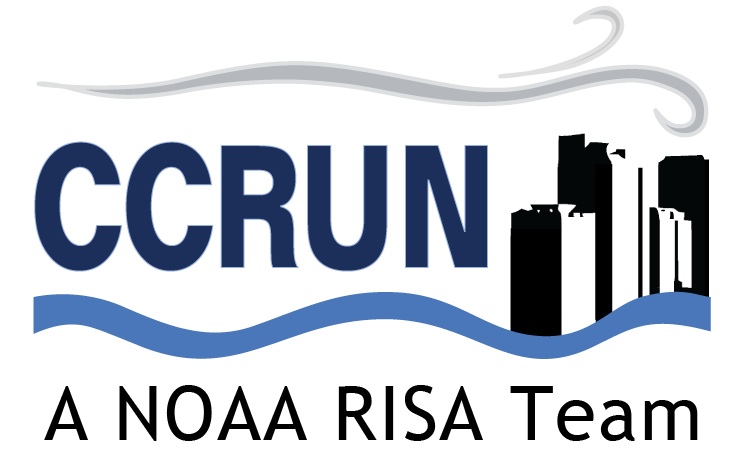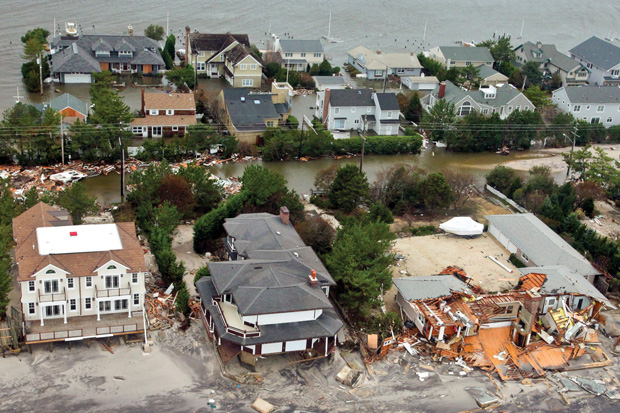CCRUN Activities
CCRUN hosts a number of workshops and events each year, engaging with stakeholders throughout the urban Northeast.
Past Workshops and Events
Seminar Series
Upcoming Seminar
CCRUN hosts a monthly seminar on the first Wednesday of the month at 4:00 PM Eastern.
A Climate Resilience Research Agenda for the Greater Philadelphia Area: Updated CMIP6 Projections for the Region and a Panel Discussion with the 2021 Working Group Co-Leads
We invite you to join our panel discussion with the co-leads of the region’s Climate Resilience Research Agenda (CRRA) Working Groups! We will also be presenting updated CMIP 6 climate projections for the Philadelphia Region.
Background: The CRRA was developed through a collaboration formed in 2019 between the City of Philadelphia, the Delaware Valley Regional Planning Commission (DVRPC), the Academy of Natural Sciences (ANS) of Drexel University, and Drexel University faculty and staff engaged in CCRUN. Through four working groups, 100+ participants representing over 60 organizations co-produced a preliminary list of research activities that, if undertaken, can help to make the Philadelphia region more resilient to climate change.
The final CRRA report, which will be released in May, will also include the most up to date climate projections for the region. Researchers from CCRUN downscaled CMIP6 data released in 2021 by the Intergovernmental Panel on Climate Change (IPCC) to the Philadelphia region in the beginning of 2023, timed with the publication of this report.
Visit our Seminars page for more information. Registration for the seminar is available here.
Recent Workshops and Events
Special Webinar - University-City Collaborations on Climate Action: Best Practices
The Biden Administration has advanced new climate initiatives that will greatly accelerate and reinvigorate the federal government’s engagement in urgently needed climate action, including the U.S.’s rejoining of the Paris Agreement. Although the previous administration withdrew from direct action, municipalities, states, and other subnational organizations continued their work on climate issues. “We are still in” became the organizing principle for this loose network of researchers, practitioners and policy-makers. While the country still faces a series of significant crises and numerous policy demands, the opportunity to advance urban climate action, generally, and policy-making and research, more specifically, is abundantly evident. This is a unique moment to link rapidly-advancing federal actions with local initiatives that have grown significantly over the past several years. The webinar focused on successful models of collaboration between cities and universities and was organized around three specific measures of success: the generation of actionable knowledge, infusion of climate considerations into higher education, and best practices for scaling climate action.
Date: May 26th, 2020
Event Recording: link
Planning for Extreme Heat Events in the Context of the COVID-19 Pandemic
Most cities and states in the U.S. Northeast region have adopted a set of programs to enhance community resilience to extreme heat events, often involving the opening of cooling centers or promoting the use of shared cooler spaces, as well as increased access to private air conditioning. With the COVID-19 outbreak and the need for continued physical distancing, some of these strategies, especially those that encourage individuals to occupy closed spaces, might in fact put people at increased risk of infection. Clearly, there needs to be a discussion on which existing strategies for mitigating the adverse health effects of extreme heat are still appropriate within the context of COVID-19 and what new strategies currently not being used could be implemented.
In response, the Consortium for Climate Risk in the Urban Northeast (CCRUN) along with its NOAA partners co-hosted a webinar and discussion titled “Planning for Extreme Heat Events in the Context of the COVID-19 Pandemic.” Panelists presented on the latest science of extreme heat exposure, potential summer 2020 heat conditions, and possible strategies for how to address summertime extreme heat if cooling centers or other public sites remain closed during that time. Discussions included proposals that could be implemented in summer 2020. Social and environmental equity considerations were also introduced into the discussion.
Date: May 20th, 2020
Event Recording: link
Adapting Stormwater Management to a Changing Climate in the Mid-atlantic and Urban Northeast Regions
Because extreme rainfall events have exposed critical gaps in planning, the Consortium for Climate Risk in the Urban Northeast (CCRUN) and the Mid- Atlantic Regional Integrated Science and Assessment (MARISA) focused this workshop on urban stormwater management. This workshop examined the challenges of integrated planning within today’s regulatory context, discussed decision support needs for climate resilience planning, and presented innovative strategies for how to integrate climate modeling into hydrologic and hydraulic modeling. Participants discussed challenges, uncertainties and next steps, and heard from exemplar cities that have begun to move forward with incorporating climate resilient design into their stormwater planning and management.
Date: March 5-6, 2020
Location: Washington, D.C.
Promoting Successful Local Coastal Resiliency Policies and Programs: Addressing Key Knowledge Gaps
CCURN hosted a series of workshops entitled Promoting Successful Local Coastal Resiliency Policies and Programs: Addressing Key Knowledge Gaps. They were held at Stony Brook University in Suffolk County, New York, and another at Monmouth University in New Jersey. The objective of the workshops was to bring together local practitioners and policy makers in the New York-New Jersey Metropolitan Region to evaluate emerging knowledge and data needs regarding how coastal residents and business owners are responding to, or might respond to, flood risk resiliency efforts associated with extreme storms, storm surge, sunny day/nuisance flooding, and sea level rise. As an output from the workshops, household surveys will be developed to address the gaps identified by policy- makers to improve effectiveness and communication of resiliency planning efforts. The surveys will be administered by Stony Brook and Monmouth students in conjunction with CCRUN researchers.
Date: June 25 - 26, 2019
Location: Stony Brook, NY
At What Point Managed Retreat? Resilience Building in the Coastal Zone
CCRUN and partners organized a conference on managed retreat, entitled “At What Point Managed Retreat? Resilience Building in the Coastal Zone”, hosted by the Climate Adaptation Initiative at Columbia University’s Earth Institute, which took place on June 19- 21, 2019. As one of the first major academia-led conferences on the subject, the event convened diverse stakeholders including researchers, community-based organizations, tribal and indigenous leadership, planners, practitioners, local government, industry representatives and more to discuss the issues surrounding retreat as an adaptation option. Major themes discussed included environmental justice, community resilience, policy and decision-making, and climate modeling of various aspects of retreat from sea level rise to migration.
The event brought together over 300 individuals, including researchers of multiple CCRUN universities, CISA, and other NOAA affiliates. The event provided a platform for CCRUN to assess knowledge gaps and opportunities for future research agendas relevant to coastal communities in the Northeast and across RISA regions. Out of this conference, the organizers plan to build new partnerships for co-generating knowledge on adaptation and develop a policy-oriented article for a leading journal, op-eds for broader audiences, and a distillation of best practices in a white paper for local planners.
Date: June 19 - 21, 2019
Location: New York, NY
Past Workshops and Events
Visit our Past Workshops and Events page for more information on workshops and events CCRUN has hosted.

